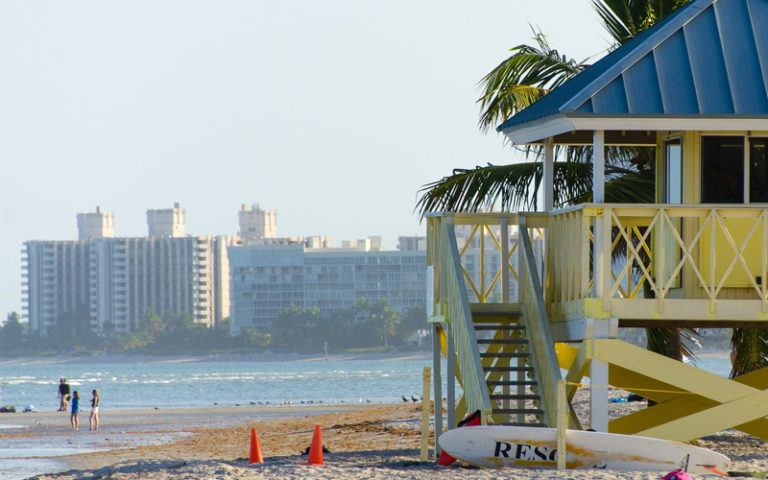Florida Intestate Succession Law
In simple terms, intestacy is the condition of the estate of a person who dies without a valid will stating how and to whom the estate assets must be distributed.
Florida intestacy may be either whole or partial. It is whole when a person did not leave a valid will or left a will that is not valid according to Florida succession law. On the other hand, intestacy is partial when a will exists but it only provides distribution instructions for part of the decedent’s assets. This may occur when the probate court determines that some portions of a will are not valid.
“Intestate property” is simply property that has not been disposed of by a valid Florida last will and testament. The law governing Florida intestacy works as a default mechanism to distribute any property that has not been properly devised by a will. These rules designate certain persons as heirs to intestate estates and specify how the shares must be distributed.
Per Stirpes – What does it mean in a Last Will?
In simple terms, per stirpes means “pass down to the heirs of the beneficiary if the beneficiary dies before the person who made the will.” In a more practical sense, for many people, per stirpes means in their Last Will that if their son or daughter predeceases them and leaves children of his/her own, those children (the grandchildren of the person who made the will) will take their deceased parent’s place and inherit what the parent would have inherited if he or she had not died.
“Per stirpes” is essentially a method of distributing assets of an estate. The basic concept behind it is that each descendant will be entitled to an equal share, and the share of a descendant who has passed away will be divided equally among his or her descendants.
Here is another example:
In a hypothetical case, a decedent had a son and a daughter. The daughter had two children and the son had one child. The decedent passes away leaving no will or dies without a surviving spouse.
If both the decedent’s son and the daughter are alive, the estate would be split equally between them and each will receive 50%.
However, if, for example, the daughter is dead at the time of the death of the decedent’s, then her two children will share their mother’s portion of the estate and each will receive 25% The decedent’s son still receives his 50%, while his only child receives nothing.
Now, if both the son and the daughter are dead at the time of the death of the decedent, then both of their shares will pass on to their children. The two children of the daughter will each receive 25%, which represents half of their mother’s 50%.; and the one child of the decedent’s son, the decedent’s grandchild, will receive the son’s whole share of 50%.
Rules of Florida Intestacy
When it comes to Florida intestacy, there are specific rules that apply and govern every case. These rules include:
- The decedent’s surviving spouse will receive the entire estate if the decedent does not have surviving lineal descendants such as children, grandchildren, etc.
- The decedent’s surviving spouse will also receive the whole estate if the decedent has lineal descendants that are also the surviving spouse’s descendants and neither the surviving spouse nor the decedent has any other children.
- If the decedent has a surviving spouse and lineal descendants that are not also descendants of the spouse, then the spouse will be entitled to one half of the decedent’s estate, and the lineal descendants share the other half, per stirpes.
- If there are lineal descendants but there is no surviving spouse, then the estate will be divided among the lineal descendants.
- If there are no lineal descendants and no surviving spouse, then the estate will pass to lineal “ascendants” such as parents, or grandparents; and any collateral relatives such as siblings, uncles, aunts, etc. This means that if the decedent’s parents are alive they will be entitled to the whole estate. However, if the decedent’s parents are not alive, then the estate will pass to the decedent’s brothers and sisters and their lineal descendants, per stirpes.
- In cases where none of the above heirs survive, the estate will pass to the heirs of the decedent’s grandparents, per stirpes; one half of the estate going to the decedent’s relatives on the maternal side and one half going to the decedent’s relatives on the paternal side.jurad
Farshchian, P.A. – Succession Law Experts
When it comes to Florida Succession Law, cases should not be dealt with without legal guidance, assistance, and representation. This is why, when one of your loved ones dies, even though it is a difficult time and the last thing anyone would want to do is worry about legal matters, hiring a Florida Probate Lawyer is the first step that needs to be taken towards ensuring that the decedent’s estate assets are distributed properly and in compliance with Florida Law.
At Farshchian Law, P.A. you will find the right lawyer for your intestacy case.
To get in touch with us, learn more about our probate services, and schedule an initial consultation, call us today at (305) 901-5628 or send us an email to Probate@JFRealEstateLaw.com.




